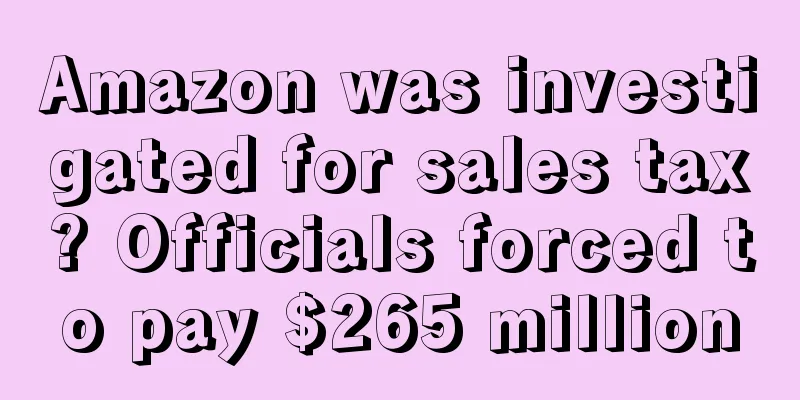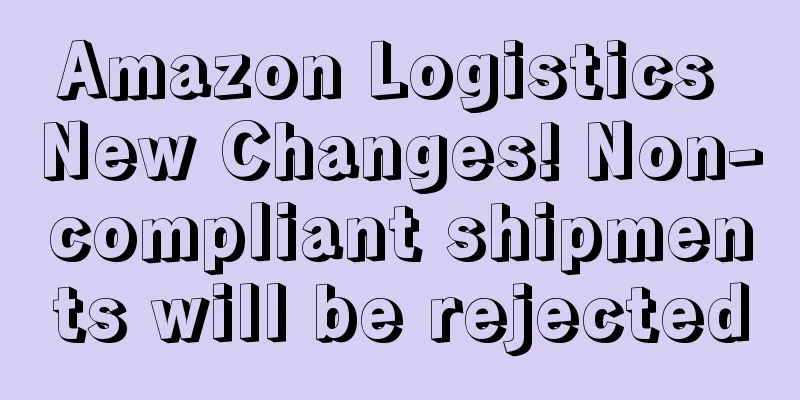Amazon cuts off 2.5 million stores? Store approval is becoming more and more difficult

|
Today, Amazon released an annual brand protection report. The data in the report showed that last year Amazon rejected more than 2.5 million store registration applications and removed more than 4 billion listings ! Since this is a brand protection report, the disclosed data on rejections of store openings and product removals are all violations of brand protection strategies. For example, products are suspected of infringement, store registration information is incomplete, there is a risk of shell company registration, etc. From this point of view, the rejection of 2.5 million store applications is quite scary. You must know that the registration information of Amazon stores is unique. If the first registration is not passed, then this set of information is basically useless. You have to re-register after several months, and the probability of passing is also very low. The vast majority of sellers can only change a set of information if the registration fails. 2.5 million registration applications were rejected, which means that almost 2.5 million store opening materials were wasted. According to the data recently released by Amazon on the proportion of sellers on the US site, Chinese sellers account for about 42% of the US site. However, among the 250 rejected store applications, more than 60% were registration applications from non-local sellers. Although Amazon did not mention any names, we can actually say openly that Chinese sellers have a higher probability of having their store applications rejected. Domestic sellers prefer to register business licenses with virtual addresses. In fact, this is also the case in the United States and Europe. In March this year, foreign media also revealed that many overseas Amazon sellers had fake registered addresses, and a large number of shell companies used restaurants, apartments, and abandoned stores to register. There was even an address on the second floor attic of a takeaway restaurant, which registered more than 761 companies. It can be seen that foreigners are not at all ambiguous about registering a company with a virtual address and then using it to open a store. However, Amazon is currently eyeing our Chinese sellers and claims that it will continue to tighten its store opening strategy. Further strengthening of store opening audit In today's report, Amazon attributed the credit for blocking millions of fake accounts to its new store opening audit measures. In 2021, Amazon implemented store opening video verification, requiring sellers to have a one-on-one video call with official auditors to verify their identities when opening a store, making it more difficult for potential risky sellers to register sales accounts. Here Amazon mentioned a store verification algorithm that was recently implemented. It uses a combination of hardware and software to capture the seller’s actual location and real payment tool information, and cooperates with machine learning to screen store opening applications that have potential risks. Based on this statement, I guess that it is during the video verification process that the seller's software and hardware data is captured to assist in the verification . We don't need to delve into how this is done. In short, when the store is audited, the location when clicking on the official video verification link is very important. If the location where the verification is conducted is too far away from the business license address, it will be subject to risk control. In terms of engaging third-party sellers, Amazon will never let us down. The most crucial point is that this report officially acknowledged for the first time one thing, that is, joint law enforcement with Chinese departments to send sellers of counterfeit and pirated products to jail. Last year, Amazon, together with law enforcement agencies in the United States, Europe and China, jointly handled 600 intellectual property infringement cases. It did not say how many Chinese sellers accounted for, but overseas media and institutions believe that Chinese sellers are not a minority. There have been rumors in the cross-border circle that Amazon has arrested service providers and illegal sellers in China. Now there is finally official confirmation. The worst case of selling counterfeit goods on Amazon is no longer closing the store and running away, but imprisonment. This is a bit scary to think about. |
<<: Big changes to US tariffs! This category has been fully exempted
Recommend
What is India's GST? India's GST Review
The full name of GST is Goods and Services Tax, wh...
What is Yahoo! Answers? Yahoo! Answers Review
Yahoo! Answers is a social question-and-answer web...
Amazon will not raise prices in 2025?
text First, there were frequent warehouse explosi...
Wish reveals its 2023 transformation plan! These are closely related to sellers
It is learned that on December 15, the 2022 Wish G...
I started my own business, but only received 3 orders in half a month for goods worth hundreds of thousands of yuan! I have been preparing for this product for more than half a year, is it all going to go to waste?
Anonymous user My C position My idea is that the c...
What is Haichuang Incubator? Haichuang Incubator Review
Haichuang Incubator (Haining Haichuang Incubator C...
How should Amazon operations analyze some information?
In the rapidly changing e-commerce landscape, domi...
What is MiJingTong ERP? MiJingTong ERP Review
Mijingtong Cross-border E-commerce ERP is a must-h...
Amazon operation tips: How to quickly become the best seller on Amazon?
The Amazon best seller logo is an orange icon tha...
Temu spends money to "attack the tower", Amazon successfully "defends the home" | In-depth
Author | Mai Lin@ Disclaimer | This article is cop...
Black Friday must-read! 10 practical tips to improve sales
Every year, the Black Friday Cyber Monday promot...
What is Amazon Smile Logo Infringement? Amazon Smile Logo Infringement Review
Amazon's logo is a smiling pattern made up of ...
What is AMZBlack? AMZBlack Review
AMZBlack is a cross-border real-person evaluation ...
How to correctly issue the invoice required by Amazon?
In Europe, VAT invoices are important documents f...









